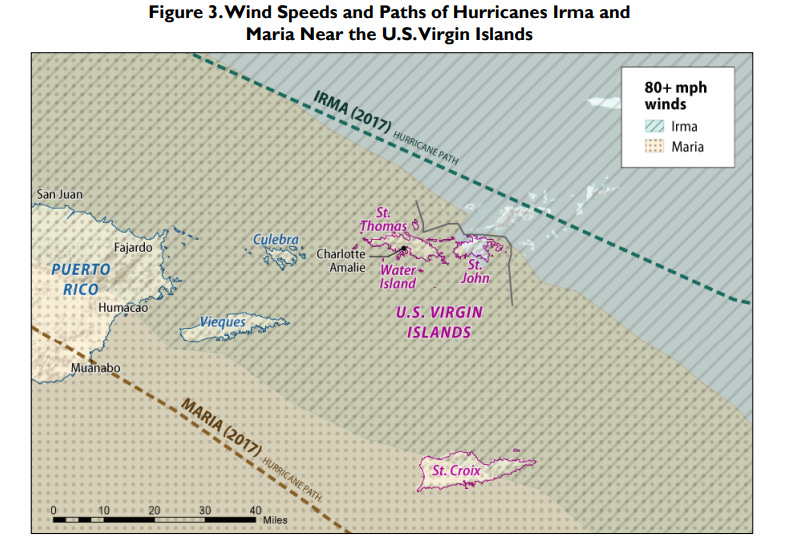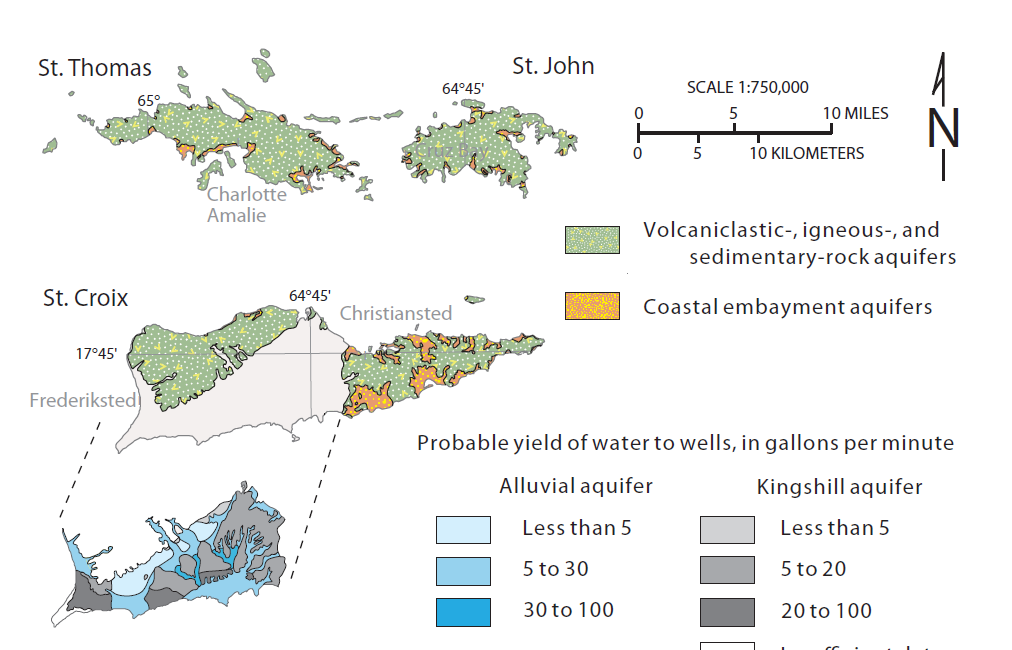Federal Reserve Bank of NY Study: Puerto Rico’s Financial Markets Held Strong After Hurricanes Irma & Maria
With Puerto Rico and smaller islands in the Caribbean archipelago shrouded in darkness for months, the Milky Way (our home galaxy) remained visible on cloudless nights for almost a year.
In November, the Federal Reserve Bank of New York published a report on how severe weather affected financial markets in Puerto Rico. Nine people contributed to the study, published in the fall, outlining Puerto Rico’s economic conditions before and after a destructive Atlantic Hurricane season in 2017.
Federal Reserve Bank of New York Case Study
The Federal Reserve Bank of New York believes Puerto Rico’s 2017 woes offer economists and climate planners insight into how severe weather impacts geologically remote areas in the United States.
The study found that financial markets in Puerto Rico and the local economy contracted for a decade before Maria. During that decade, assets held by commercial banks shrank by forty percent through bank failures, consolidations, and ballooning government debt.
“We use Puerto Rico’s experience during the devastating hurricanes of 2017 as a case study to better understand the effects of severe weather events on geographically vulnerable areas and the banks that lend in those areas. Puerto Rico (PR) was extremely vulnerable even before Maria struck,” the study reads. “Its economy and banking sector had contracted for nearly a decade, and its water and electrical infrastructure was fragile due to chronic fiscal constraints on investment and maintenance. Compounding matters, Hurricane Irma dropped a foot of rain in Puerto Rico just two weeks before Maria, leaving the island waterlogged and prone to mudslides (a peril associated with Puerto Rico hurricanes). Given those challenging initial conditions, Maria might constitute a worst case for studying bank resilience against extreme weather.”
Both cyclones wreaked havoc on Puerto Rico’s aging infrastructure at a critical time when a federal law enacted in 2016 brought the island’s debt under federal oversight.
The Puerto Rico Oversight, Management, and Economic Stability Act (PROMESA) is a federal law that oversees the territory’s government debt crisis. PROMESA established a financial oversight board, a process for restructuring debt, and expedited procedures for approving critical infrastructure projects in Puerto Rico. The federal government argues that PROMESA is a program built on solid legal and constitutional grounds. So far, the federal judiciary has kept PROMESA intact.
Understanding the Scale of the 2017 Atlantic Hurricane Season
After dealing a direct blow to smaller islands in the northern Caribbean archipelago, Hurricane Irma passed north of Puerto Rico on September 7, 2017. Irma devastated the island of Dominica before making its way up the archipelago. The record-breaking cyclone made landfall seven times in the Caribbean, bringing record winds and record rainfall to the region.
The damage from Irma’s massive rainbands caused widespread power outages and water service interruptions for several days in Puerto Rico.

Days later, Puerto Rico and Saint Croix positioned resources and readied their ports to aid islands reeling from the Category 5 storm. Two weeks later, Hurricane Maria formed, dealing a direct blow to Saint Croix and Puerto Rico. FEMA estimated Maria’s damages to Puerto Rican infrastructure at $90 billion, the third-costliest in U.S. history.
As a result, nearly eighty percent of the island’s electrical grid failed after the storms made landfall. Puerto Rico also experienced the most prolonged blackout in U.S. history, lasting over 320 days.
Combined damages from Irma and Maria nearly exceeded Puerto Rico’s annual GDP of around $104 billion in 2016. To put Puerto Rico’s economic position and its environmental impact in the Caribbean archipelago into perspective, consider this:
Puerto Rico emits the most light pollution in the Caribbean. With Puerto Rico and smaller islands in the chain shrouded in darkness for months, the Milky Way (our home galaxy) remained visible on cloudless nights.
As impacted islands slowly rebuilt their electrical grids, it would be nearly a year before the Milky Way disappeared from nighttime view.
Puerto Rico plays a significant role in the Caribbean, providing services and manufactured goods and even functioning as a hub for regional travel. It also hosts the only Veteran’s hospital in the Caribbean, which regularly offers care to Veterans who call the island home, those traveling, and Veterans living in the U.S. Virgin Islands.
Caribbean Economies Intersect
The Bank of New York’s study covers a lot of ground and offers valuable insight into Puerto Rico’s aging infrastructure and evolving economy. However, the study overlooks Puerto Rico’s outsized impact as an economic powerhouse in the Caribbean.
The island serves as a jump-off point for international flights to the Americas, Europe, and islands with smaller airports in the Caribbean. The storms interrupted daily living in the U.S. Virgin Islands and Puerto Rico, prompting Congresswoman Stacey Plaskett to negotiate routing mail from the United States Postal Service through New York.
Mail heading to the U.S. Virgin Islands is typically sorted in Puerto Rico first. Once both territories felt the impacts of Irma and Maria, it became necessary to tap New York to assist with the load. The change allowed Puerto Rico to prioritize emergency services and allowed mail to flow to both territories with little delay.
While the Bank of New York study focuses on Puerto Rico, it fails to consider how many islands in the Caribbean rely on the territory’s economic scale for air travel and medical supplies. Much of Puerto Rico’s burden in 2017 and 2018 included repositioning the island’s critical services like air travel and mail service. The study focuses on jurisdictions within the United States, but Puerto Rico’s economy stretches far beyond its shores. This means when severe weather or natural disasters impact the big island, regional partners and smaller islands also take a hit.




